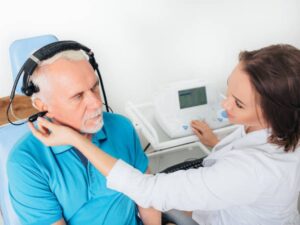Auditory Processing Disorder (APD) presents a unique challenge for those affected, particularly in the realm of communication and learning. Individuals with APD struggle to make sense of the sounds they hear, leading to difficulties in processing and interpreting auditory information. In Adelaide, the pursuit of effective auditory processing disorder therapy has become a significant focus, aiming to provide individuals with the tools they need to navigate a world that revolves around sound.
Understanding Auditory Processing Disorder:
Before delving into therapy options, it’s crucial to comprehend the intricacies of Auditory Processing Disorder. APD is not a hearing impairment; rather, it affects how the brain interprets sounds. Individuals with APD may experience difficulties distinguishing between similar sounds, understanding speech in noisy environments, following multi-step directions, and often struggling with reading and spelling.
Therapeutic Approaches in Adelaide:
 Adelaide, a city known for its progressive healthcare initiatives, offers a range of therapeutic interventions tailored to address the specific needs of individuals with APD. These therapies encompass various techniques and methodologies aimed at improving auditory processing skills and enhancing overall communication abilities.
Adelaide, a city known for its progressive healthcare initiatives, offers a range of therapeutic interventions tailored to address the specific needs of individuals with APD. These therapies encompass various techniques and methodologies aimed at improving auditory processing skills and enhancing overall communication abilities.
- Auditory Training:
Auditory training forms the cornerstone of APD therapy in Adelaide. This approach involves structured activities designed to improve the brain’s ability to process auditory information. Therapists use specialised computer programs, listening exercises, and games to train individuals to recognise and interpret different sounds accurately. By gradually exposing patients to increasingly complex auditory stimuli, auditory training aims to enhance listening skills and promote better comprehension.
- Speech-Language Therapy:
Speech-language therapy plays a vital role in addressing the language and communication challenges associated with APD. Therapists in Adelaide employ a range of techniques, including articulation exercises, language drills, and auditory discrimination tasks, to help individuals develop essential speech and language skills. Through targeted interventions, speech-language therapy aims to improve clarity of speech, enhance vocabulary, and foster effective communication strategies.
- Occupational Therapy:
Occupational therapy complements auditory processing disorder therapy by addressing sensory processing difficulties that often coexist with APD. In Adelaide, occupational therapists work with individuals to develop sensory integration techniques and sensory regulation strategies, helping them better manage sensory input and improve overall attention and focus. By creating sensory-friendly environments and incorporating sensory-based activities into therapy sessions, occupational therapists empower individuals to navigate sensory challenges more effectively.
- Assistive Listening Devices:
Assistive listening devices (ALDs) play a significant role in facilitating communication for individuals with APD. In Adelaide, therapists may recommend the use of ALDs such as FM systems, personal amplifiers, or auditory processing headphones to enhance auditory signal clarity and reduce background noise. These devices work by improving the signal-to-noise ratio, making it easier for individuals with APD to focus on and comprehend spoken information in various settings, including classrooms and social gatherings.
- Multisensory Approaches:
Recognising the interconnected nature of sensory processing, therapists in Adelaide often employ multisensory approaches to APD therapy. By incorporating visual, tactile, and kinesthetic stimuli alongside auditory tasks, therapists create holistic learning experiences that engage multiple senses simultaneously. These multisensory techniques not only reinforce auditory processing skills but also promote cross-modal integration, enhancing overall sensory processing and cognitive functioning.
The Role of Family and School Support:
Effective APD therapy in Adelaide extends beyond clinical settings to encompass comprehensive support networks involving families, schools, and communities. Family involvement is crucial in reinforcing therapeutic strategies and providing ongoing encouragement and support to individuals with APD. Additionally, collaboration between therapists and educators ensures that interventions are seamlessly integrated into the academic environment, enabling students with APD to thrive academically and socially.
Challenges and Future Directions:
While significant strides have been made in APD therapy in Adelaide, challenges persist in ensuring accessibility and equity of services for all individuals affected by this disorder. Limited awareness and resources remain barriers to timely diagnosis and intervention, highlighting the need for continued advocacy and investment in APD research and education. Looking ahead, advancements in technology and neuroscience offer promising opportunities for the development of innovative therapeutic approaches and personalised interventions tailored to the unique needs of individuals with APD.
In conclusion, auditory processing disorder therapy in Adelaide encompasses a multidisciplinary approach aimed at improving auditory processing skills, enhancing communication abilities, and fostering overall well-being. Through a combination of auditory training, speech-language therapy, occupational therapy, assistive listening devices, and multisensory approaches, individuals with APD can unlock their potential and navigate the auditory world with confidence and competence. With ongoing support from families, schools, and communities, Adelaide continues to be at the forefront of advancing auditory processing disorder therapy and promoting inclusivity and empowerment for all.

